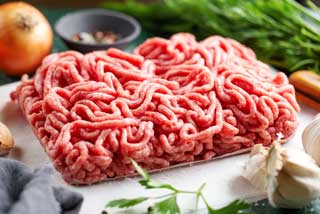Mistakes to avoid when starting a plant based diet
Immediately cut meat consumption
As previously mentioned, a plant based diet does not mean that you instantly become a vegetarian or vegan. Although similar, it also includes a limited portion of dairy products and meats (always in moderation).
By including a diverse amount of foods, it does not demand supreme restriction in your diet, which means you can eat without depriving yourself of some healthy cravings from time to time. Deprivation is not good in any case as it can lead to eating disorders or nutritional deficiencies.
Not getting the nutrients you need
With all the variety of foods you can choose from, you shouldn’t run into trouble regarding nutrients. However, sometimes the drastic restriction of meats and dairy can make it difficult to get some vitamins and acids. Before starting a diet like this, you’d better put together a plan to guide you on where to get the nutrients from.
Relying on alternative meats
The transition to a plant-based diet sometimes causes you to relapse and you end up acquiring imitation meat that does not benefit you since most of them contain sodium, artificial flavorings, and preservatives that harm your body. Additionally, some of them contain processed ingredients too.
The first thing you should do to avoid them is reading the label, where all the nutritional values are in plain sight, and keep an eye on the sodium levels. An amount higher than 20% of your daily value is too much. You may also want to check the saturated fats as you aim to get as many of the real ingredients from whole grains, nuts, and peas as possible.
Eating too many carbs and not enough protein
The first option after cutting out meat is to fall back on carbs -no one can deny that bread, pasta, and other flour-based treats are irresistible. But the problem lies in processed carbs being able to spike your blood sugar levels. This causes you to enter a vicious cycle of sugar consumption.

Proteins, on the other hand, take much longer to digest and help keep your blood levels stable, thus controlling your appetite. Therefore, you should increase your protein throughout the day.
Start in the morning by using high-protein nut milk instead of regular milk, or add beans to your salad at lunch. Another popular option is to use protein powder in smoothies and supplement your diet with seeds and small snacks of natural peanut butter.
